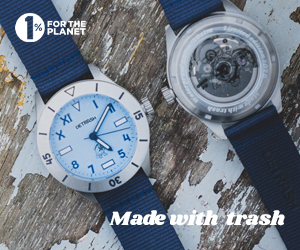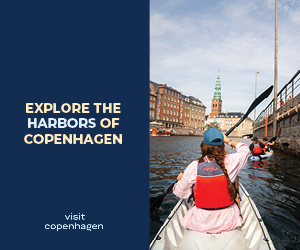We’ve ditched our underground travel systems and motorways, and I hop about from A to B in my individual zero-carbon transport pod. The West has the most powerful information system ever known, yet on an individual level, partly because I’m no spring chicken, I struggle with the latest-generation MIT Sixth Sense device that provides constant data access as I interact with the real world. I’m not at a stage of dementia when it could be useful to give me the information I actively require. Rather, it makes me feel overwhelmed, and a sure victim of consumerism, given all the advertising messages thrown at me.
In the UK we’re using a mixture of nuclear and – mainly offshore – renewables for our energy supply. But due to the ever-increasing costs and the blackouts that occurred a few years ago, everyone is more careful with their personal energy consumption. Government efforts focus on predicting the unpredictable weather patterns, and on building up our flood barriers and natural-disaster warnings system. This has enabled the survival of the British public beyond that of less developed countries.
Also still valued and in short supply, plastic has become far from fantastic as neighbours scrap over splitting earnings from the government’s latest cash reward recycling scheme – no pun intended.
There’s little rainforest and few indigenous tribes left.
We’re still trying to increase our world food production by 70% in order to feed everyone, a state of affairs that was predicted 45 years ago by the Food and Agriculture Organisation. Yet a constant food supply in the UK has been achieved through increased intensive farming and genetic modification technology, that produce limited yet highly nutritious foodstuffs. I’m afraid the countryside is not as I remember – farmers today don white coats instead of wellies.
Our fashion industry has adapted so that it is as much about science as it is craft within the design. Clothing breathes clean, fresh oxygen into our atmosphere as we walk as a method of de-polluting our air supply, and our dresses are disposable and disappear after use in order to reduce landfill, as envisioned by Helen Storey of the Wonderland project.
Air travel has increased in popularity and is cheaper than ever and clean, safe and – you’d never guess – delay-free, aided by the industry decision to switch to biofuels. There’s little rainforest and few indigenous tribes left, but the global powers – government and corporations – still assert that they are doing everything they can to protect them, and all I can do is believe them at this stage of my life. I wonder if perhaps we could have chosen an even more balanced pleasurable and sustainable route …
Back to the present day, and my melancholy attempt at time travel, Hollywood-style aside, there is value in envisioning our world’s prospects. We can’t depend on that novelty 1980s Magic 8-Ball, as we would be likely to receive a response of ‘reply hazy, try again’.
Forum for the Future specialises in futures techniques that connect the steps to be taken to reach any given scenario outcome, and as a result can highlight and impact key policy revisions. Their Fashion Futures report that hosts four scenarios in 2025 (Slow is Beautiful, Techno chic, Community Couture and Patchwork Planet) does just that with the global fashion industry.
I suspect that even the most ethically minded individual in the UK struggles not to succumb to the temptations that society offers on a silver platter: the ability to be entertained 24/7; cheap and easy access to food, energy and clothing; the ability to travel wherever we desire, despite knowing the consequences for people, the planet and its diverse species. Like Forum for the Future’s scenario planning, envisaging the future is a useful exercise to do individually, as it can wake us up and help us to avoid that state of apathy and guilt.
We can audit our knowledge of both the issues and possibilities, while simultaneously questioning our own belief systems and connecting with our values. We can then identify what is our responsibility (and what is not), and evaluate how willing we are personally to change. While not everyone has the instant savoir faire or space to grow vegetables, or the money for the most environmentally efficient appliance, we can work out what it is realistic to achieve by incremental measures.
It is the little things.
This approach echoes the work of utilitarian philosopher Peter Singer, who has dedicated a lifetime to seeing public ethics in action. In his 1990s book How are We to Live?: Ethics in an Age of Self-Interest, Singer declared that, ‘We have to take the first step. We must reinstate the idea of living an ethical life as a realistic and viable alternative to the present dominance of materialist self-interest.’ Singer added that what sets us apart from any other animal species is our brain capacity, and our ability not only to learn and understand, but also to reason.
How do we avoid the Magic 8-Ball answer, ‘outlook not so good’? The way in which we choose to spend our time is something we can independently alter. Perhaps we can invoke the Italian concept of pleasure: il bel far niente – the beauty of doing nothing – as writer Elizabeth Gilbert points out in her book Eat, Pray, Love.
I often find that it is the little things that give most satisfaction. Some are practical: receiving goodies to fill up my cupboards from a community bulk-buy scheme every few months creates real celebration in our house. Cooking a meal from scratch, checking on the vegetables I’ve grown from seed and even, lo and behold, sewing a button back on. While some, it could be argued, are not: devouring a novel, gazing out of the window, playing Scrabble with friends and making fresh pasta. (I add the latter after a friend’s eyebrows shot up when I declared that I’d spent my afternoon in a constant flurry of kneading and rolling, and I knew she was thinking it was an inefficient use of anyone’s time, and that it would have been much easier if I’d just bought dried pasta, not realising the fun I’d had … until, that is, I put her straight.)
The Happy Planet Index, published by the New Economics Foundation (nef) in summer 2009 combines ‘environmental impact with well-being to measure the environmental efficiency with which, country by country, people live long and happy lives’. It concluded that you need neither to consume resources nor to have wealth in order to live a pleasurable life – agreeing with the Italian perspective. It commends the Costa Ricans, who draw on a quarter of the world’s resources typically used in Western countries, while achieving the highest levels of happiness and satisfaction.
Five practical rules.
Singer similarly announced that the cohesion of ethics and pleasure could create more meaningful living. ‘If a critical mass of people with new priorities were to emerge, and if these people were seen to do well, in every sense of the term – if their cooperation with each other were to bring reciprocal benefits, if they found joy and fulfilment in their lives – then the ethical attitude would spread, and the conflict between ethics and self-interest would have been shown to be overcome, not by abstract reasoning alone, but by adopting the ethical life as a practical way of living and showing that it works, psychologically, socially and ecologically.’
Bhutan in South Asia has also developed a Gross National Happiness Index that coincided with the coronation of the fifth King of Bhutan in 2008. While both happy indexes have their critics, they attempt to redefine what it means to be successful, one of the motivations for modern-day overconsumption.
Nef suggest five practical rules for achieving personal well-being that subtly promote sustainability, as they are not resource-intensive or bleak actions. Connect with the people around you; step outside and embrace activity; take notice and be curious of your surroundings; keep learning (whether it’s useful or not!) and give and do good to others, a theme that has been intertwined into books on morality for centuries, and a thread maintained throughout the major religions.
How we choose to employ these rules is down to individual choice, making it an accessible approach that allows us to enjoy the best of both worlds without any sense of being a killjoy, or worry or guilt about bringing forth an apocalyptic future. In conclusion, Singer declared: ‘One thing is certain: you will find plenty of worthwhile things to do. You will not be bored or lack fulfilment in your life.’
pranavmistry.com/projects/sixthsense
wonderland-sheffield.co.uk
forumforthefuture.org
utilitarian.net/singer
neweconomics.org/projects/happy-planet-index
grossnationalhappiness.com











